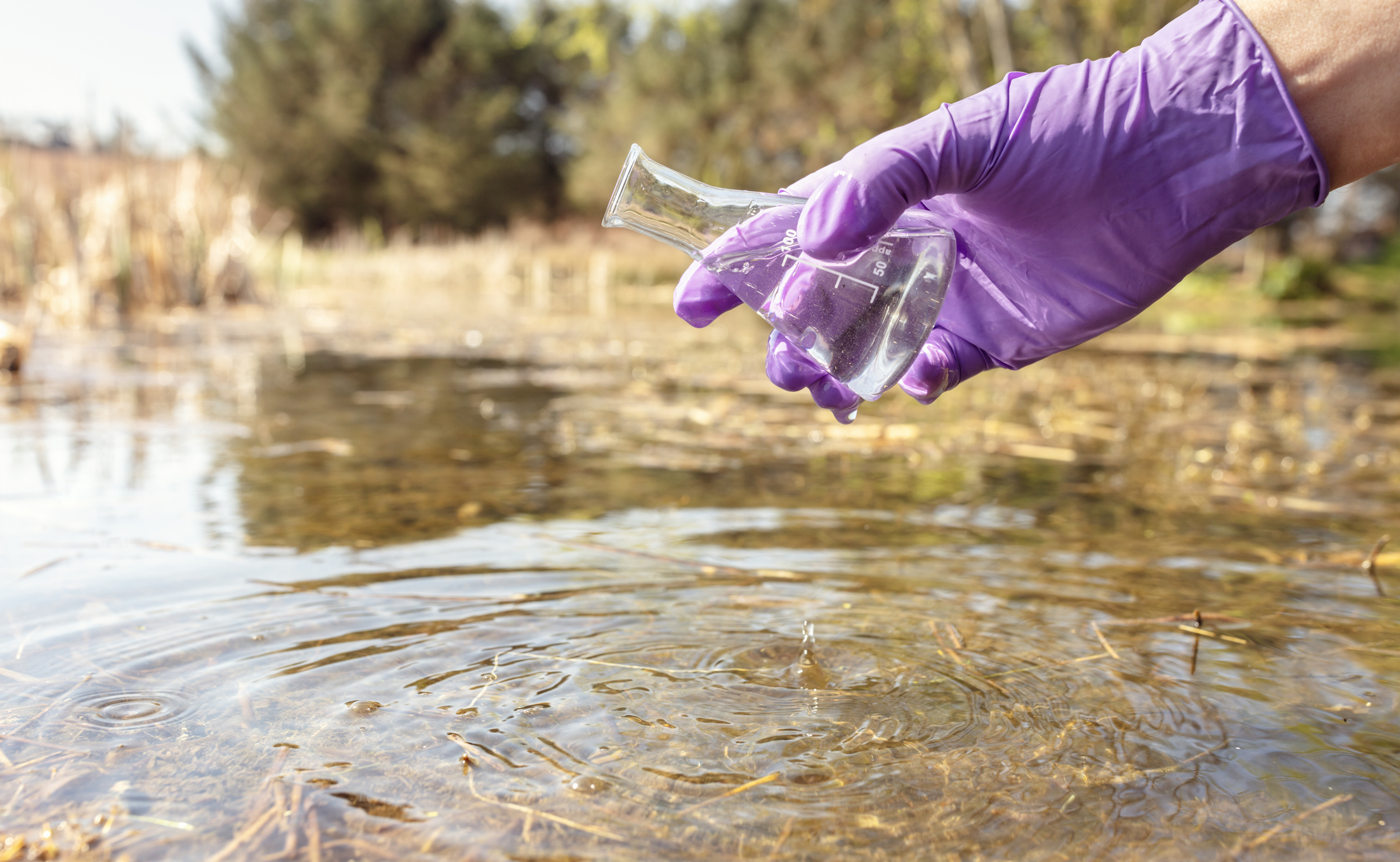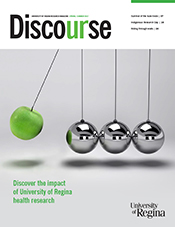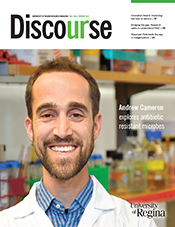Dinah Tambalo, Aditi Sharma, Jordyn Bergsveinson, Esam Hussein (dean of engineering and award presenter), Christopher Yost, Nurul Huda Khan, and Ryan Weir (senior manager of Innovation Place) with the Innovation Saskatchewan Award of Innovation at the 2019 Paragon Awards. (Photo by Michael Lasko Photography)

Collaboration can be the key to discovery. In the case of a dynamic partnership between a University of Regina research team and an industry partner, it’s also the key to an award that celebrates innovation.
Chris Yost, biology professor and co-director of the Institute for Microbial Systems and Society, and his research team of postdoctoral fellows recently won the Award of Innovation at the Regina Chamber of Commerce 2019 Paragon Awards for their work with Lallemand Inc., a business that develops and commercializes microbe-based technologies.
The University scientists first partnered with Lallemand in 2016. Since then, their work has centred on plant inoculants, which are the bacteria or fungi added to crop plants to help mobilize nutrients or protect plants against diseases, ultimately resulting in increased yields for farmers.
“Lallemand knows that their products work, but they came to us because we have the infrastructure and expertise to help them to understand precisely how their plant inoculants work at the molecular level,” explains Yost.
Yost says that improving a system to get better outputs requires an understanding of all the gears inside that system. “Essentially, we figured out the gears inside which has helped in the understanding of how these products increase outputs for farmers,” says Yost.
Using DNA sequencing technologies to develop new functional genomics tools, the researchers were able to show in great detail what is happening when the microbes grow on the roots of the plants. This information has allowed for more targeted inoculations, which, in turn, has provided farmers with new tools to secure crop yields with environmentally friendly plant growth-promoting bacteria.
“This collaboration has been mutually beneficial,” says Yost. “Lallemand benefits because they gain new insights into the biology of their inoculants. The farmers benefit because they get higher yields, and we benefit because we train students for skills in addressing Saskatchewan-relevant research, make new fundamental discoveries, and publish our research with students.”
The team, which includes postdoctoral fellows Jordyn Bergsveinson, Aditi Sharma, and Dinah Tambalo, is now taking its work a step further.
“Using a complex genome-shuffling process, we are working to create superior crop inoculant strains that have never before been available as commercial inoculants,” says Yost.
“Lallemand knows that their products work, but they came to us because we have the infrastructure and expertise to help them to understand precisely how their plant inoculants work at the molecular level,” explains Yost.
If successful, their work will help Lallemand to quickly and successfully create better products for farmers.
“Our long-term partnership with Lallemand is allowing for continuous innovation,” says Yost.
Nurul Huda Khan, senior research and development manager, Lallemand Plant Care, Lallemand Inc., says collaborating with Yost and his team is a pleasure and privilege.
“Their knowledge in creating and connecting the dots between academics and industry means we have developed a long-standing trustful and fruitful relationship, which has led us to hire three former students from [Yost’s] lab,” says Khan.
Khan says the scientific data and information the researchers have already generated are expected to benefit Lallemand’s current inoculant business, and they are anticipating more exciting results in the future.
“Our heartiest congratulations to the team for receiving the Award of Innovation. Lallemand is proud to be a part of this great honour,” says Khan.
The Award of Innovation recognizes original research carried out at the University of Regina that has the potential to create substantive societal benefits. Each submission is reviewed based on novelty, societal benefit or public good, application of research, and collaboration and partnership.

















